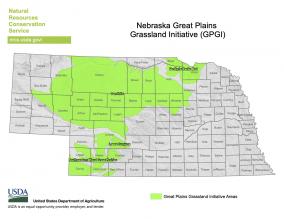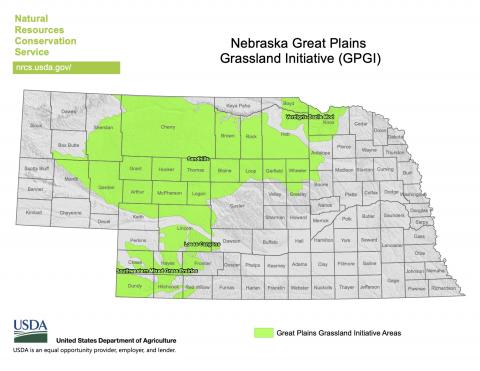Funds Available to Help Restore and Protect Rangeland
Funds Available to Help Restore and Protect Rangeland

LINCOLN, Neb., Oct. 22, 2021 – Through the U.S. Department of Agriculture (USDA) Natural Resources Conservation Service (NRCS), Nebraska producers have funding opportunities to help address the spread of invasive woody vegetation on rangeland. Landowners interested in receiving funding should apply at their local NRCS field office by Nov. 19.
With funding through the Environmental Quality Incentives Program (EQIP), farmers can adopt management practices that help treat the spread of Eastern redcedar trees and other invasive woody vegetation on rangeland.
NRCS is targeting funding to address this natural resource concern through its Nebraska Great Plains Grassland Initiative (GPGI). The initiative is part of the NRCS Working Lands for Wildlife (WLFW) framework to conserve grassland regions in the Great Plains.
Management practices eligible for financial assistance through the GPGI include brush management, prescribed grazing, grazing deferment, prescribed burning, and more. NRCS is focusing this funding on farms and ranches in the Sandhills, Loess Canyons, southwest mixed-grass prairies, and Verdigris-Bazile creek watershed (see map).
The landowner-driven Great Plains Grassland Initiate strives to provide producers the tools necessary to create and maintain grasslands free of Eastern redcedar and other invasive woody species. Additional funding may also be available from partner organizations to help further reduce the cost to producers.
According to NRCS, removing Eastern redcedar at lower densities before they take over the rangeland is more cost-effective for the producer, conserves and restores forage production, and protects wildlife habitat.
Individuals interested in applying for conservation funds may do so at any time, but applications need to be submitted by Nov. 19 to be considered for this year’s funding.
For more information about conservation programs and other assistance available, call your local NRCS field office or visit www.ne.nrcs.usda.gov.




